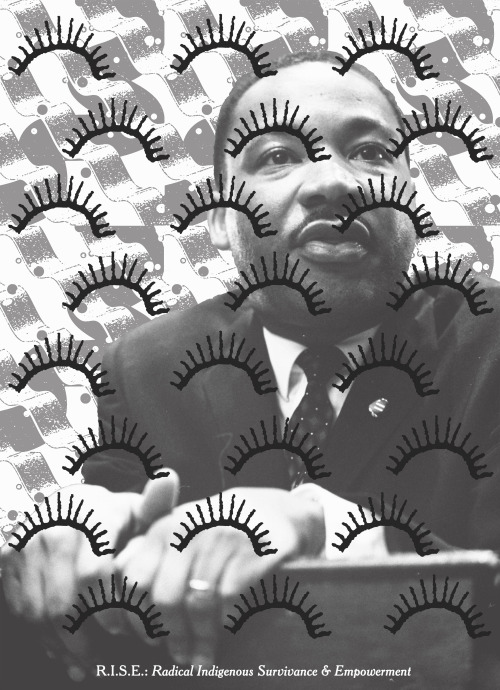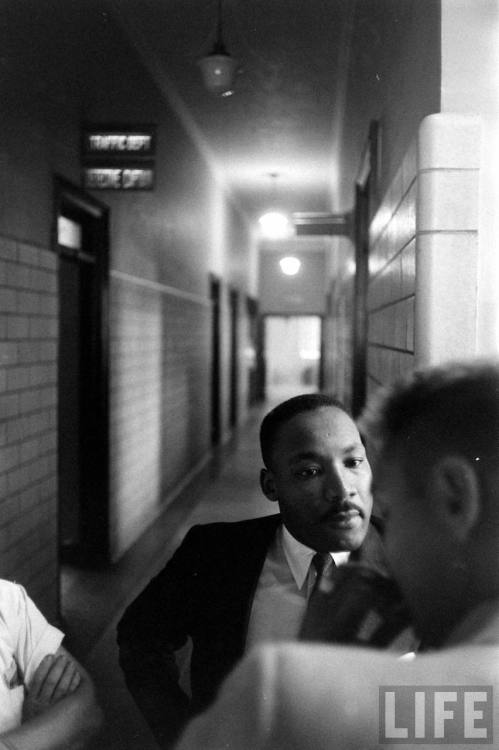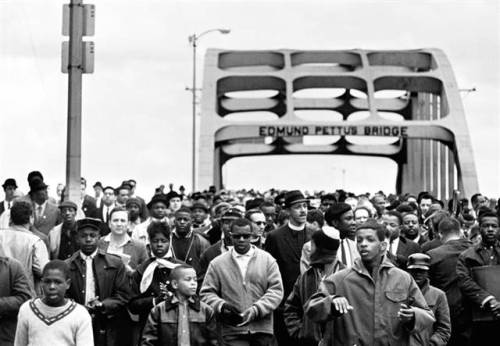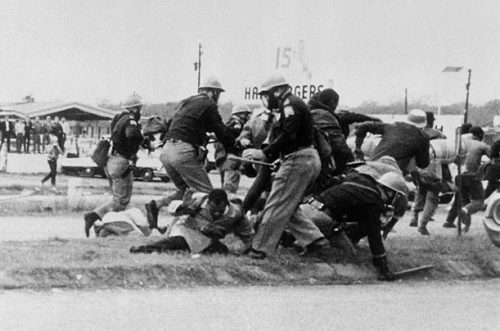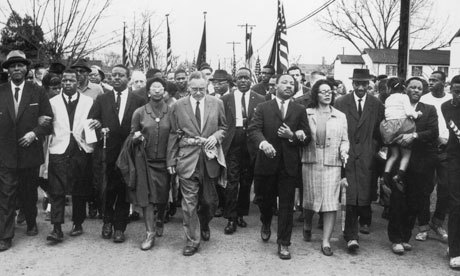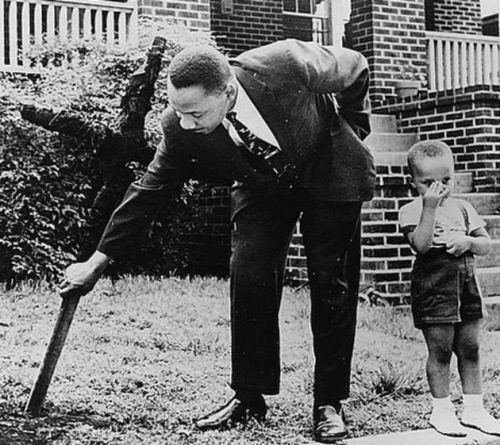#martin luther king




Credit: Jordan J. Lloyd
I’ve been trying to dive deeper into politics, discover the genuine roots of our society, the origins of our beliefs, and the consequences of our economic system. It’s a big, long, wide journey and through multiple sources such as articles, images, videos and multiple social media platforms, I’ve been trying to educate myself more on important subjects.
Communism, capitalism, libertarian, conservative, the left, the right, the history, the impact. It is scary to commit to everything because once you start, you simply cannot stop, once you start waking up your conscience about the horrible reality, the lies, the truths, you cannot put it back to sleep. You can’t just ignore prejudice, especially when you’re extremely conscious of it’s omnipresence. I have continually tried to build my own opinions all while actively creating bullet point arguments in my mind because I just know that at some point I will have to defend my thinking, and I want to do it right.
Now, I am so far from being enlightened, I am a beginner and an amateur in all of those themes, but I am trying, which is the only way to start and grow.
So to tell you about my beliefs, I am a militant human rights activist, I believe in equal opportunities regardless of gender identity, sex, religion, sexual orientation, ethnicity, race and disability. This is a fact, not a belief, but the system was obviously not built to protect all people, its wasn’t created to serve everyone equally but to grant a privilege to some and harm others. The current state of the world is not a slip, an accident or a misfunction of our brilliant system but a testament of it operating remarkably well. I believe that equity leads to equality, and I believe that we cannot “fix” methodologies that were immorally created with absolutely no honor whatsoever. I believe in reproductive rights, in legal, safe abortions for anybody who needs one. I believe in the decriminalization of marijuana. I believe that the death penalty is a despicable punition that should be banned as soon as possible. I believe in defunding the police and the military. I believe that it is a shame that I even have to talk about police brutality, I don’t want to have to say that it is one of the most horrible things our world has originated, I feel extremely dense when I do because it seems like the most obvious certitude and I refuse to believe that this is a controversial statement. I believe that everything I have just stated, along with many more, isn’t anything grand but the bare minimum, the bar is low, and yet, we still have the fight for basic human decency.
Humanity has become an option. We have normalized supporting people that represent everything wrong in this world under the name of tolerance. The left has never claimed to be tolerant towards hateful beings, We have never accepted homophobia, transphobia, racism, ableism and sexism. We cannot, for exemple, accept nazis, as too much tolerance inevitably leads to intolerance. This picture explains it perfectly:

I consider myself a communist/ socialist. The two terms still confuse me a little, some say they are the same, some say they differ quite a bit. What I know is that socialism is the transitional period between capitalism and communism. At the end of the day, the final result and goal is a stateless, moneyless and clasless society that will provide to each his need.
Our capitalistic society has brainwashed us way more than you may think. It is the root of so many of our issues, the underground demon of our problems. Every idea, thought, belief, and misconception of ours were all affected by our current economic system. It has sold us the billionnaire dream which is one of the most toxic things capitalism has offered. We have looked up to billionaires for way too long, why are they so idolized? Most of them come from high upper class families that can easily afford to invest in their inventions and creations. After starting up their companies and occasionnaly stealing other’s people ideas to ultimately get undeserved merit, they then can start to properly exploit their hardworking employees’s labour. And for unlimited hours and a minimum wage which probably won’t even suffice you to survive, you will have to either pick up more shifts or a second or even third job, especially if you have a family to support. All while the CEO barely does any of the work and gets all the praise and money. So no, they don’t all come from really poor families and have built everything for nothing.
The worst thing is that we’ve been so gaslit and brainwashed that we’re proud of our own exploitation, we are wired to think that to be successful we have to suffer, work 10 jobs we all hate, constantly pick up extra hours, have 2 hours of sleep, have no free time to do anything we love, waste our entire youth, be depressed our entire adulthood, to finally have a few pennies to spend when we’re eighty. We so strongly believe that this is the only right way to be successful that I don’t think many of us have dared to question it’s authority, and even if we do, we quickly accept that this a truth, a fact we cannot change and this is just the way things are.

We have capitalized water, food, land, forests, oceans, space, and everything in betweeen. Money is social construct and we have deliberately let it take over our lives. To think about the wasted opportunities and the misery that we have to endure so others can enjoy life truly angers me.
Also, communism is not an ideology that has every actually taken place. Despite what they say, there was never actually a communist country. However, every nation that has attempted a socialist system, for exemple Burkina Faso, has thrived. But of course, once capitalist countries noticed that, they decided to murder it’s leader. So in conclusion, the only reason socialism failed is because of capitalism and it’s interventions.
“As President (1983-1987), Sankara initiated economic reforms that shifted his country away from dependence on foreign aid and reduced the privileges of government officials; he cut salaries, including his own, decreed that there would be no more flying in first class or driving Mercedes as standard issue vehicles for Ministers and other government workers. He led a modest lifestyle and did not personally amass material wealth. President Sankara encouraged self-sufficiency, including the use of local resources to build clinics, schools and other needed infrastructure. […] President Sankara promoted land reform, childhood vaccination, tree planting, communal school building, and nation-wide literacy campaigns. He was committed to gender equity and women’s rights and was the first African leader to publicly recognize the AIDS pandemic as a threat to African countries. Although Sankara became somewhat more authoritarian during his Presidency, his ideas, and the possibility that they could spread, were viewed by many as posing the greatest threat. President Sankara was assassinated during a coup led by a French-backed politician, Blaise Compaoré, in October 1987. Compaoré served as the President of Burkina Faso from October 1987 through October 2014, when he himself was overthrown.”
Via:https://africandevelopmentsuccesses.wordpress.com/2015/02/28/success-story-from-burkina-faso-thomas-sankaras-legacy/
Success Story from Burkina Faso: Thomas Sankara’s Legacy
I have been reading and watching some amazing human rights activists, notably Angela Davis, Malcolm X and James Baldwin. The people that were villainized, labeled as violent and radical, when every single word that came out of their mouhs were pure facts. They are probably some of the most eloquent people I have had the pleasure of hearing. Every sentence, every argument, every single detail made so much sense and opened my mind to so many new realizations. This is the perfect exemple of how the media tarnishes the reputation of wise black women and men. I would strongly advise you to research more about them.
“Socialism & communism are demonized in the west to the point of erasing influential individuals’ socialist advocacy. Heres a short list of people you may not have known were socialists/ communists:
- MLK
- Albert Einstein
- Nelson Mandela
- Frida Kahlo
- Tupac Shakur
- Mark Twain
- Malcom X
- Oscar Wilde
- Bertrand Russell
- Hellen Keller
- Pablo Picasso
- George Orwell
- Shia LaBeouf
- John Lennon
- Woody Guthrie
Socialism & communism are not dirty words. Some of the most brilliant minds of our history were socialists and communists. Embrace it.” Via @sleepisocialist on twitter
So what else can I say, capitalism has ruined our society and the way we act and think. I know a lot of people refuse to support communism because they think it’s too much of a perfect ideal utopian world for it to ever actually exist. And to that I say, first of all, so you agree, it is a wonderful theory, and second of all, a world without racism, sexism, homophobia or any kind or discrimination could also be perceived as “too ideal to actually exist”, but does that mean I’m giving up on talking, educating myself and others, protesting and trying to build a better future? Absolutely not. This is the objective, it would be so dumb to think that we just couldn’t achieve that so let’s not even try.
I want to talk more in detail about communism, theory, human rights, etc… but I don’t want to make this post any longer. I will however be posting more about it soon enough.
I know this is a little different than what I usually post, but I want to speak, tell you all my own opinions, I don’t want to just repost activism related stuff. I’ll continue to do that, but not exclusively. I know it won’t get as many interactions as my other posts, but this is what I needed at some point in my life, and if I could make understanding some basic informations easier to some people, it’ll already be a great accomplishment.
Thank you for reading.
“Let us not seek to satisfy our thirst for freedom by drinking from the cup of bitterness and hatred.”
-Martin Luther King Jr., I Have A Dream…
Film Hype #283.
Selma is the story of a movement. The film chronicles the tumultuous three-month period in 1965, when Dr. Martin Luther King, Jr. led a dangerous campaign to secure equal voting rights in the face of violent opposition.
The epic march from Selma to Montgomery culminated in President Johnson signing the Voting Rights Act of 1965, one of the most significant victories for the civil rights movement.
Selma tells the real story of how the revered leader and visionary Dr. Martin Luther King Jr. and his brothers and sisters in the movement prompted change that forever altered history.
Post link
On 27 August 1963 thousands of US-Americans headed to Washington - it was the March on Washington for Jobs and Freedom. On 28 August 1963, Martin Luther King delivered his speech “I Have a Dream”. James Baldwin was “prevented from speaking at the march on the grounds that his comments would be too inflammatory”. The march was supported by celebrities such as, for instance, Marlon Brando, Charlton Heston, Harry Belafonte, Burt Lancaster, Josephine Baker, Joan Baez, James Garner, and Paul Newman.
Post link
Mexico City Statue Honors U.S. Civil Rights Leader Martin Luther King, Jr.
“I am convinced that love is the most durable power in the world. It is not an expression of impractical idealism, but of practical realism. Far from being the pious injunction of a Utopian dreamer, love is an absolute necessity for the survival of our civilization. To return hate for hate does nothing but intensify the existence of evil in the universe. Someone must have sense enough and morality enough to cut off the chain of hate and evil, and this can only be done through love.”
— Martin Luther King Jr.
Post link
“In our glorious fight for civil rights, we must guard against being fooled by false slogans, as ‘right-to-work.’ It provides no 'rights’ and no 'works.’ Its purpose is to destroy labor unions and the freedom of collective bargaining… We demand this fraud be stopped.” ~ Martin Luther King, Jr.
Dr. King spoke out against the genocide of Native Americans
by: Albert BenderDespite the yearly celebrations of Martin Luther King Day and African American History Month, it is probably little known what the great freedom fighter had to say about the horrific mistreatment of Native Americans by the U.S. In his 1963 book, “Why We Can’t Wait,” writing about the origins of racism in this country, King strongly condemned the historic injustices inflicted on Native people. He wrote the following:
“Our nation was born in genocide when it embraced the doctrine that the original American, the Indian, was an inferior race. Even before there were large numbers of Negroes on our shores, the scar of racial hatred had already disfigured colonial society. From the sixteenth century forward, blood flowed in battles of racial supremacy. We are perhaps the only nation which tried as a matter of national policy to wipe out its Indigenous population. Moreover, we elevated that tragic experience into a noble crusade. Indeed, even today we have not permitted ourselves to reject or feel remorse for this shameful episode. Our literature, our films, our drama, our folklore all exalt it.”
Woefully, Dr. King’s words still ring true to this very day in so many respects. But King’s poignant words on the tragic history of Native Americans are largely unknown in mainstream society.
Although King played the leading role on the cutting edge of the African American liberation struggle for social justice and equality, he was a fighter for all of the oppressed of this land. His birthday holiday this year brought to mind a story I was told years ago of how he assisted Native people in south Alabama in the late 1950s.
At that time the Poarch Band of Creek Indians were trying to completely desegregate schools in their area. The South has so many seemingly outlandish racial problems: In this case, light-complected Native children were allowed to ride school buses to previously all white schools, while dark-skinned Indian children from the same band were barred from riding the same buses.
Tribal leaders, upon hearing of King’s desegregation campaign in Birmingham, Ala., contacted him for assistance. He promptly responded and through his intervention the problem was quickly resolved.
Also, little known is that in the 1963 March on Washington there was a sizable Native American contingent, including many from South Dakota. Moreover, the civil rights movement inspired the Native American rights movement of the 1960s and many of its leaders. In fact, the Native American Rights Fund (NARF) was patterned after the NAACP’s Legal Defense and Education Fund.
Re-reading Dr. King’s words I had to harken back in history to the fact that according to U.S. Census Bureau figures, by 1900 there were only 237,196 Native Americans left in the entire country - this from an original population that numbered in the tens of millions. In the words of one historian the outright massacres had ceased by then, simply “because there were just not that many Indians left to kill.” King rightly concluded that the genocide of American Indians was “national policy.” Indeed, on many reservations the story still circulates that as late as the 1890s a debate was held by the U.S. Congress to consider the outright military extermination of all remaining Native Americans. According to these accounts the only reason this nefarious plan was not carried out was because it would be too expensive.
But fast forwarding to the 21st century it must be seen that both the civil rights movement and the Native American rights movement have had a major impact on the U.S. and the world at large. Dr. King played an immeasurable role in these movements that roiled the status quo and marked a new stage of struggles that are ongoing to this day.
_________________________________.
R.I.S.E.
Radical
Indigenous
Survivance &
EmpowermentInfo:
http://www.burymyart.tumblr.com/
http://www.facebook.com/RISEindigenous
contact: [email protected]http://peoplesworld.org/dr-king-spoke-out-against-the-genocide-of-native-americans/
_________________________________.
Post link
Dr. Martin Luther King, Jr. at his Atlanta home with wife, Coretta Scott King, and three of his four children. Circa 1963
Post link
Getting very lazy with blog posts but finally have some time! Last weekend we went to Atlanta for the night, as we had tickets to see Bombay Bicycle Club, and it was so much fun.
We rode the Megabus early on Saturday morning (6.30am, aah!), so we could get there for about 10.30, and then have the day to spend in Atlanta. It was SO cold on the Megabus, obviously we were all trying to sleep, but I was absolutely freezing as I was wearing a skirt so couldn’t really get off. Other than that the bus is great! Theres TV’s that apparently show films on the longer journeys, and theres free WiFi, so you can pretty much find something to amuse you on the way.
Once we got there we went to get breakfast and then dropped our stuff off at the hotel. We managed to get the Holiday Inn for $110 for the four of us, what a bargain, and they’re always really clean and comfortable. After we’d dropped the bags off, we went to look around the Olympic Park, which was really cool. It was really interesting as there was all sorts of monuments for the different athletes and countries. It was cool as there was a monument that included our very own Steve Redgrave!


We then went on to the CNN tour which was really cool. It takes you up the biggest free-standing escalator in the world (interesting stuff) into this massive globe, and then you make you’re way down to the bottom again through all the studios. We got to look at all the newsrooms, and watched one of the anchors hosting live.



We then went to the Martin Luther King site, which I’d already been to with my family a few years ago, but was still so interesting to see again. We wanted to walk there from where we were Downtown, but we ended up having to walk right through the ‘ghetto’ part of town, which was actually quite scary. I know that parts of Atlanta can be dangerous, but we just sort of ended up there! Anyway we got to the site and it was amazing. We went into the church that MLK grew up in and preached in until his death, which was so interesting. They have it all laid out in the same way it was when he was there, and theres a recording of his voice thats played on repeat, and it’s definitely a strange feeling as it is still sad. We went to the museum which is even sadder. I was nearly crying because there is these awful photos of his parents at his funeral which are just really hard to look at. The thought that all this was going on in my parents lifetimes is just so crazy to me, it definitely puts race issues into perspective. Here we are sat infront of he and his wife’s tomb:

After this we were (as you can imagine) VERY tired, so we went back to the hotel to get ready for the gig. I’d never heard much of Bombay Bicycle Club, but they were really really good! One of my favourite things to do is go and watch bands that I don’t really know, because I always think you like songs more if you hear them live. Also, we met one of the band members at the end, and as they’re an English band he was suprised at four English girls turning up to see them in Atlanta1

On Sunday before we got the bus home we went to this really cool underground mall for a few hours where I finally bought myself some new trainers and now all ready to get back to the gym! While we were at this mall went to Eddie Rockets which is the American diner and we had milkshake which I guess is very authentic!

On the way back to the bus stop we got to see the Captiol building which has some cool statues, for example of Jimmy Carter. Obviously we had such a great weekend but I was absolutely knackered by then and was pretty glad to get back to Knoxville!
Sweatpants & History | Rosa Parks and Her Lifetime of Activism
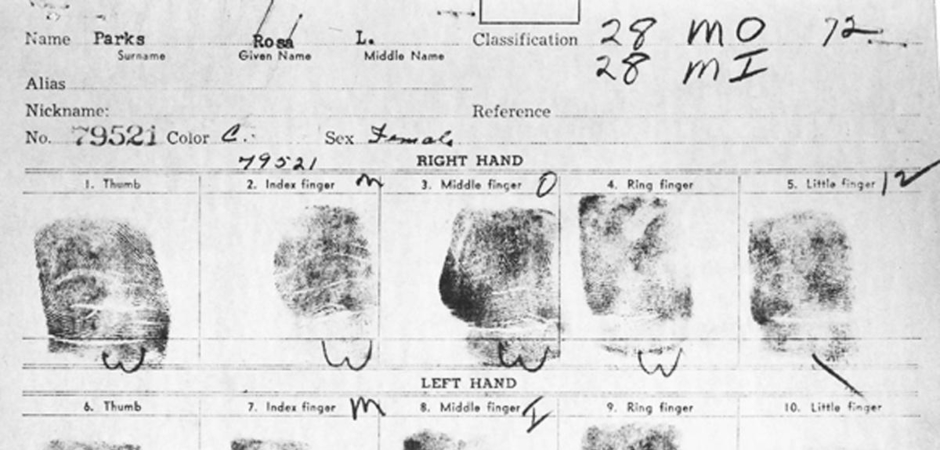
Today, on what would have been her 104th birthday, Rosa Parks’ contribution to the Civil Rights Movement is honored—in two states: California and Missouri (Ohio and Oregon observe Rosa Parks Day on December 1, the anniversary of her arrest). Only four out of fifty states have proclaimed a day to honor the woman often dubbed “the first lady of civil rights.” Aside from being a missed opportunity…









Josephine Baker,
(3rd June 1906 - 12th April 1975)
Born in St. Lous, Missouri, Josephine Baker was a signer, dancer, and civil rights activist. After moving away from America and to France and leaving her husband at the age of 19, she joined a black vaudeville group. She became very popular in France during the 1920s and became one of the highest paid and most sought after performers in Europe.
During World War 2, Baker joined the French Resistance as a spy and whilst touring around Europe, she would carry large amounts of sheet music that had messages written on in invisible ink. She also used her fame to smuggle photographs of German military installations out of enemy territory. She gained the rank of lieutenant in the Free French Air Force and was awarded the Medal of Resistance and the Croix de Guerre.
In 1928, a Hungarian cavalry officer and an Italian count did just that in Budapest. According to a contemporary account from TIME magazine, “the ogling and attentions of Hungarian Cavalry Captain Andrew Czlovoydi became too fervently gallant to be stomached by La Baker’s manager, Count Pepito di Albertini.” The Count challenged the soldier to a sword-fighting duel. The duel took place in a cemetery and Baker cheered on her manager from her seat on top of a tombstone.
As a way to try and combat the racism of the time and show an example to the world, Baker adopted twelve orphaned children of various ethnicities and countries.
Baker received a pet cheetah named Chiquita to use as part of her dance show, and after the act was finished she chose to keep the animal. Chiquita traveled the world with Baker, road in her car and slept in her bed. She had a goat named Toutoute who lived in her dressing room at her nightclub, and at the same club she had a pet pig named Albert who lived in the club’s kitchen and ate on the food scraps. Albert got so large from his lavish lifestyle that he couldn’t get through of the kitchen’s door any longer and the door’s frame had to be taken off.
Ernest Hemingway once called Baker “the most sensational woman anyone ever saw.” While in Paris, Baker mixed socially with some of the most famous creatives of the Jazz Era, including Jean Cocteau and Pablo Picasso, the latter of whom called her “the Nefertiti of now” and jumped at the chance to paint the singer.
Josephine Baker was an advocate of civil rights. During a visit to America in the 1950s she was refused entry to multiple hotels (36 throughout her career) under segregation, which led to her writing articles about racial equality and campaigning with the National Association for the Advancement of Colored People, as well as refusing to perform in segregated venues, regardless of how much they offered to pay her.
In 1963, she joined Martin Luther King Jr to speak at the March on Washington, and after his assassination was asked by his wife to take her husbands position as the leader of the movement, but declined in fear of endangering her children.
Although she spent most of her life in France, Baker rememberd the impact of segregation and institutionalised racism from her childhood in St Louis where she left school at age eight to become a live-in domestic servanas where she was not allowed to look her employer in the eye and was once punished by a woman for using too much soap in the laundry and received burns to the hand.
When Baker died of a cerbebral haemorrhage, she received a full Roman Catholic funeral, and was the only American born woman to have full french military honours.
⭐️ another fun fact!⭐️
In the 1997 animated film ‘Anastasia’, there’s a quick camero of Josephine Baker during the song ‘Paris Holds the Key (To your Heart)’ and she can be seen wearing her iconic banana dress and walking her pet cheetah.
March 7th 1965: Bloody Sunday in Selma
On this day in 1965, a civil rights march took place from Selma to Birmingham, Alabama; it became known as ‘Bloody Sunday’. At this stage, the Civil Rights Movement had been in motion for over a decade and already achieved legislative success with the Civil Rights Act. However the focus of the movement now became making the promise of equal franchise guaranteed in the Fifteenth Amendment a reality. While African-Americans exercised the right to vote in the years after the amendment’s passage in 1870, discriminatory measures like literacy tests, poll taxes, and grandfather clauses were soon implemented across the country to deprive them of the vote. Thus in 1965 civil rights leaders like Martin Luther King Jr. made voter registration the core of their efforts, centering the campaign on the particularly discriminatory Selma, AL. On March 7th - ‘Bloody Sunday’ - as the six hundred unarmed marchers were crossing the Edmund Pettus Bridge, they were descended upon by state troopers who viciously beat the protestors. The violence encountered by these peaceful marchers, which was captured on television and broadcast around the world, led to national outcry and caused President Johnson to publicly call for the passage of his administration’s proposed voting rights bill. After securing the support of federal troops, another march was held on March 21st, and with the protection of soldiers the marchers managed to arrive in Montgomery after three days. The marchers were met in Montgomery - the epicentre of the movement and the site of the 1954 bus boycott - by 50,000 supporters, who were addressed by King. Their efforts were rewarded when, in August of that year, Congress passed the Voting Rights Act that ensured all Americans could vote. This was one of the crowning achievements of the Civil Rights Movement, and the Selma to Montgomery march is commemorated as one of the most important moments of the struggle.
“We are on the move and no wave of racism can stop us. The burning of our churches will not deter us. The bombing of our homes will not dissuade us. We are on the move now…not even the marching of mighty armies can halt us. We are moving to the land of freedom”
- King’s 'Address at the Conclusion of the Selma to Montgomery March’ - 25th March, 1965
Post link
I often find it upsetting when people post pictures of trivial matters that do nothing to comment on the state of racial relations in America with the caption “mlk died for this.” MLK didn’t die for you to get coffee with your black friend or listen to Kanye and talk about how hood you are. MLK didn’t die for anything, he wished to live. He wanted to continue his fight, he wanted to see the day when his tree bore fruits. He didn’t chose to die a martyr to further his cause. He was not guaranteed martyrdom. He died because of the very thing he was trying to fight: hatred and racism. He died because a white man hated him.
Well-said. MLK would’ve preferred to live to see his legacy, and to provide for his children and grandchildren - not to become a martyr.
Dr. Martin Luther King Jr. takes down a burnt cross from his lawn as his son stands next to him, 1960.
Post link






